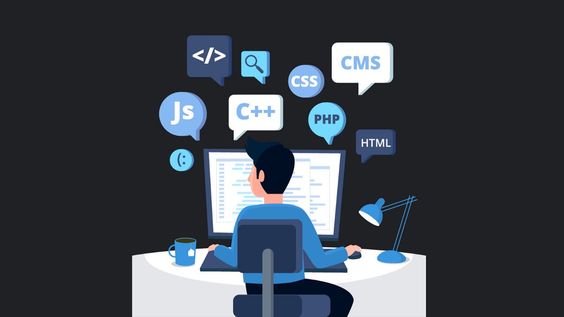Introduction
As South Korea continues to solidify its position as a global technology leader, the demand for skilled Software Development Managers (SDMs) has risen significantly. These professionals play a critical role in guiding development teams, driving innovation, and ensuring the successful delivery of software projects. This article explores the role of a Software Development Manager in South Korea, the job market landscape, essential skills, and strategies for securing a position in this competitive environment.
The Role of a Software Development Manager
Definition and Scope
A Software Development Manager oversees software development projects, leading teams of engineers to deliver high-quality software solutions. This role encompasses technical oversight, team management, and strategic alignment with business objectives.
Key Responsibilities
- Team Leadership
- Recruiting, mentoring, and managing a team of software engineers.
- Fostering a collaborative and innovative team culture.
- Project Management
- Planning and executing software development projects using methodologies like Agile and Scrum.
- Setting timelines, defining deliverables, and monitoring progress.
- Technical Oversight
- Ensuring best practices in coding, testing, and deployment.
- Conducting code reviews and ensuring adherence to quality standards.
- Stakeholder Communication
- Acting as a liaison between technical teams and business stakeholders.
- Providing regular updates on project status and addressing any concerns.
- Resource Management
- Managing budgets and allocating resources effectively.
- Identifying training and development needs for team members.
- Continuous Improvement
- Implementing processes and tools to enhance team productivity.
- Encouraging innovation and staying updated with industry trends.
Job Market Landscape in South Korea
Demand for Software Development Managers
The demand for SDMs in South Korea is driven by various factors:
- Tech Industry Growth: With the expansion of technology companies, especially in software and fintech, the need for experienced SDMs has increased.
- Digital Transformation: Many traditional industries are adopting digital solutions, necessitating skilled managers to oversee these transitions.
- Startup Ecosystem: The vibrant startup scene, particularly in cities like Seoul, creates opportunities for SDMs to lead innovative projects.
Industries Hiring Software Development Managers
- Information Technology: Major companies like Samsung, LG, and Kakao frequently seek SDMs for various software development projects.
- Finance and Fintech: Firms like Toss and Naver Pay are looking for experienced leaders to manage financial technology solutions.
- E-commerce: Online giants such as Coupang and Gmarket require SDMs to oversee their platform development and enhancements.
- Gaming and Entertainment: Companies like Nexon and NCSoft need SDMs to lead game development projects.
- Telecommunications: Organizations such as SK Telecom and KT Corp often hire SDMs for software-related projects.
Essential Skills for Software Development Managers
Technical Skills
- Programming Knowledge: Proficiency in languages like Java, Python, C++, or JavaScript is crucial for understanding the development process.
- Software Development Methodologies: Familiarity with Agile, Scrum, and DevOps practices is essential for effective project management.
- System Architecture: Understanding software architecture principles helps in making informed decisions about technology stacks and design patterns.
Leadership Skills
- Communication: Strong verbal and written communication skills are vital for conveying technical concepts to non-technical stakeholders and ensuring clarity within the team.
- Conflict Resolution: The ability to mediate disputes and foster a positive team environment is crucial for maintaining morale and productivity.
- Motivational Skills: Inspiring team members to achieve their best work while maintaining a healthy work-life balance is essential for long-term success.
Interpersonal Skills
- Empathy: Understanding team members’ perspectives fosters a supportive work culture.
- Negotiation: Negotiating timelines, resources, and stakeholder expectations is a key aspect of the role.
Navigating the Job Market
Job Search Strategies
- Online Job Portals: Websites like JobKorea, Saramin, and LinkedIn list numerous job opportunities for SDMs in South Korea.
- Networking: Engaging in industry events, meetups, and professional organizations can help build valuable connections.
- Recruitment Agencies: Collaborating with agencies that specialize in tech placements can provide access to exclusive job openings.
- Company Websites: Directly checking the careers section of target companies can uncover opportunities not listed elsewhere.
Application Tips
- Tailored Resume: Customize your resume to highlight relevant experience and skills that align with the job description.
- Compelling Cover Letter: Write a cover letter that showcases your leadership experience and understanding of the company’s goals and projects.
- Interview Preparation: Research the company’s culture, recent projects, and industry trends. Prepare for both technical and behavioral interview questions.
Salary Expectations
Compensation Overview
Salaries for Software Development Managers in South Korea vary widely based on factors such as experience, company size, and location. On average, SDMs can expect:
- Entry-Level: ₩60,000,000 – ₩80,000,000 per year
- Mid-Level: ₩80,000,000 – ₩120,000,000 per year
- Senior-Level: ₩120,000,000 – ₩200,000,000+ per year
Benefits and Perks
In addition to competitive salaries, many companies offer attractive benefits, including:
- Health Insurance: Comprehensive health coverage for employees and their families.
- Work-Life Balance: Flexible working hours and options for remote work.
- Professional Development: Opportunities for training, certifications, and continued learning.
- Performance Bonuses: Incentives based on individual and team performance.
Cultural Considerations
Workplace Culture in South Korea
Understanding South Korean workplace culture is essential for success. Key aspects include:
- Hierarchy: South Korean companies often have a hierarchical structure where respect for seniority is important.
- Collectivism: Emphasis on teamwork and group consensus is valued over individual achievements.
- Punctuality: Being on time is critical in South Korean business culture, reflecting respect for colleagues.
Building Relationships
Establishing strong relationships with team members and stakeholders is vital. Engaging in team-building activities and showing appreciation for contributions fosters a positive work environment.
Conclusion
The role of a Software Development Manager in South Korea is both challenging and rewarding, offering a dynamic environment for professionals eager to lead impactful projects. With the country’s emphasis on technology and innovation, opportunities abound for skilled SDMs. By understanding the job market, honing the necessary skills, and embracing the unique aspects of South Korean workplace culture, aspiring Software Development Managers can build successful careers in this vibrant field.
